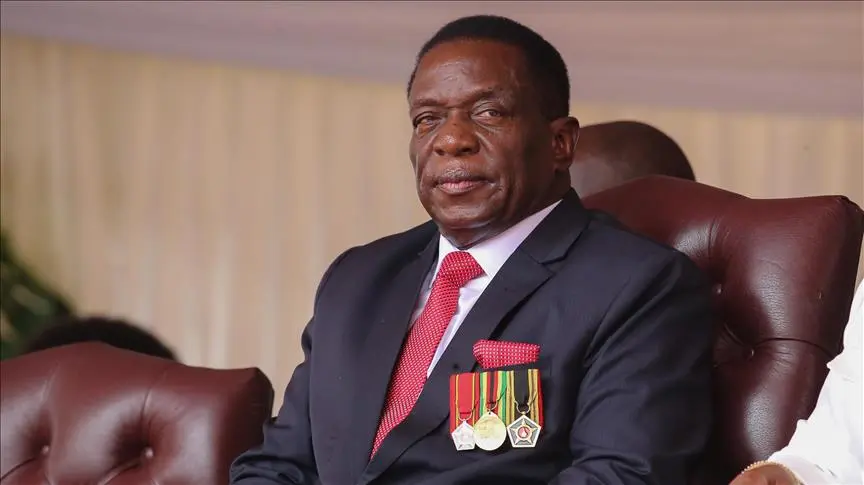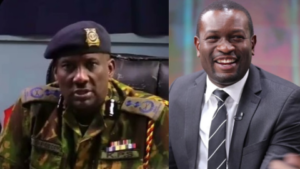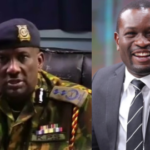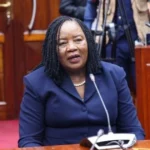Zimbabwe’s Secretary for Foreign Affairs, Ambassador James Manzou, advised diplomats whose heads of state will not attend the inauguration to keep off.

Foreign envoys have been limited to those accompanying the President of their respective countries. If any foreign diplomat planned to attend the inauguration, they would be locked out if they were not accompanying their nation’s president.
“Please be advised that only heads of mission whose Heads of State or government are attending the inauguration ceremony will be allowed to come,” he said in a note released to all missions represented in Harare.
Kenya sent Prime Cabinet Secretary Musalia Mudavadi to represent President William Ruto at the inauguration of President Emmerson Mnangagwa.
Mudavadi’s Press Office released a Press statement on Sunday. It said Kenya values the strong relations between the two countries and conveys the country’s goodwill message to Mnangagwa on his re-election for the second term.
“On behalf of the government and the people of Kenya, H.E President William Ruto congratulates President-elect, H.E Dr Emmerson Mnangagwa on his re-election for the second term,” read the statement.
Safely arrived in Harare, Zimbabwe and warmly received by Ministers for Foreign Affairs and International Trade, Amb. Frederick Shava, and the National Housing colleague, Hon. Daniel Garwe.
— Musalia W Mudavadi (@MusaliaMudavadi) September 3, 2023
Also present was the Kenyan High Commissioner to Zimbabwe, Amb. Stella Munyi. pic.twitter.com/N9zuSza4Iy
Kenya’s Support for Zimbabwe’s President
President Ruto had earlier commended the people of Zimbabwe for showing up and exercising their right to vote. He equally praised them for carrying out their democratic right peacefully. Furthermore, he reassured Kenya’s support for Zimbabwe’s development.
“President William Ruto commends the people of the Republic of Zimbabwe for peacefully exercising their constitutional right during the election process,” read the statement.
“Kenya remains steadfast in its commitment to strengthening the long-standing relationship it shares with the government and the people of the Republic of Zimbabwe.”
Subscribe to Switch TV
Mnangagwa won the elections in August after garnering 52.6 per cent of the vote according to the Zimbabwe Electoral Commission, defeating his opponent Nelson Chamisa who got 44 per cent of the vote under the Citizens Coalition for Change party.
After the elections, however, the opposition made claims of fraudulent elections in Zimbabwe. Analysts have then questioned the credibility of the elections, which were marred by arrests of vote monitors. Mnangagwa’s ruling party, ZANU-PF said there were no irregularities and Mnangagwa urged anyone with complaints to go to the courts.
Read Also: Zimbabwe Police Ban Opposition Rally Igniting Election Tensions
Zimbabwe’s main opposition party further called for nationwide protests against the election of Mnangagwa for his second term in office. The United States Department of States later released a press release mentioning that despite Mnangagwa’s win, there were some processes that did not meet regional and international standards for credibility.
➡️ President Yoweri Museveni of Uganda has DECLINED to attend the FAKE Inauguration that is the product of a SHAM election, where the entire world knows that the PRETENDER, Mnangagwa, LOST badly.
— Bhudhi Ghivhi (@BhudhiGhivhi) September 4, 2023
He called Zimbabwe's Mnangagwa an "amateur" when it comes to rigging.
Insiders… pic.twitter.com/G6gfx7PzQF
Since the opposition team did not take their claims to court, the president would be sworn in according to the stipulations of the constitution.
Read Also: Has Democracy Failed in Africa














